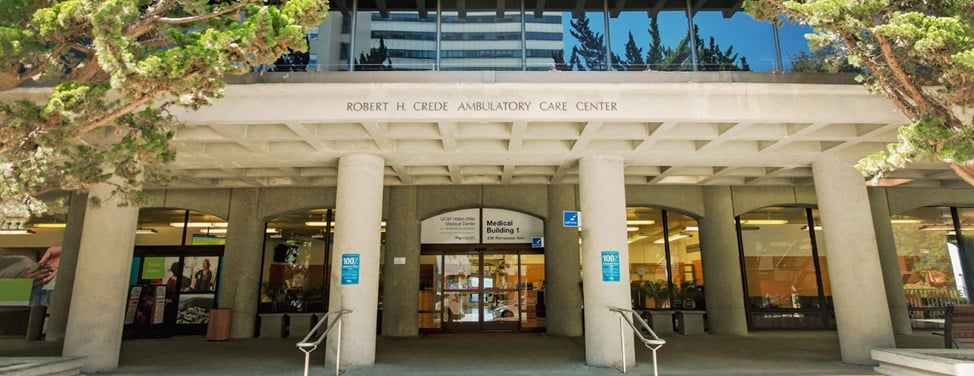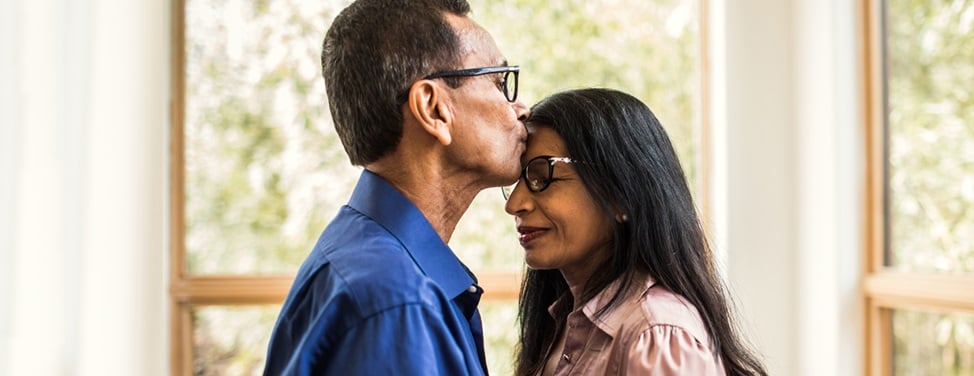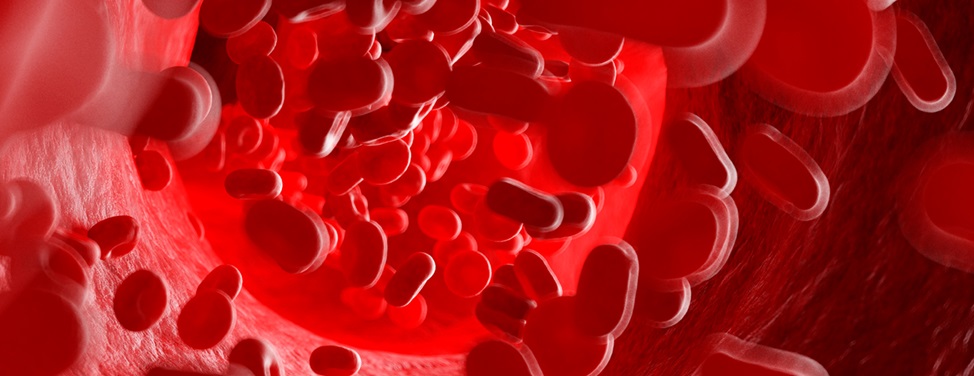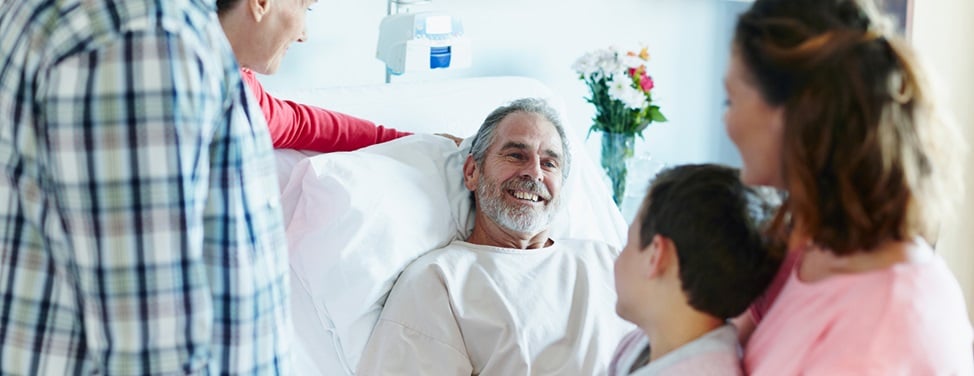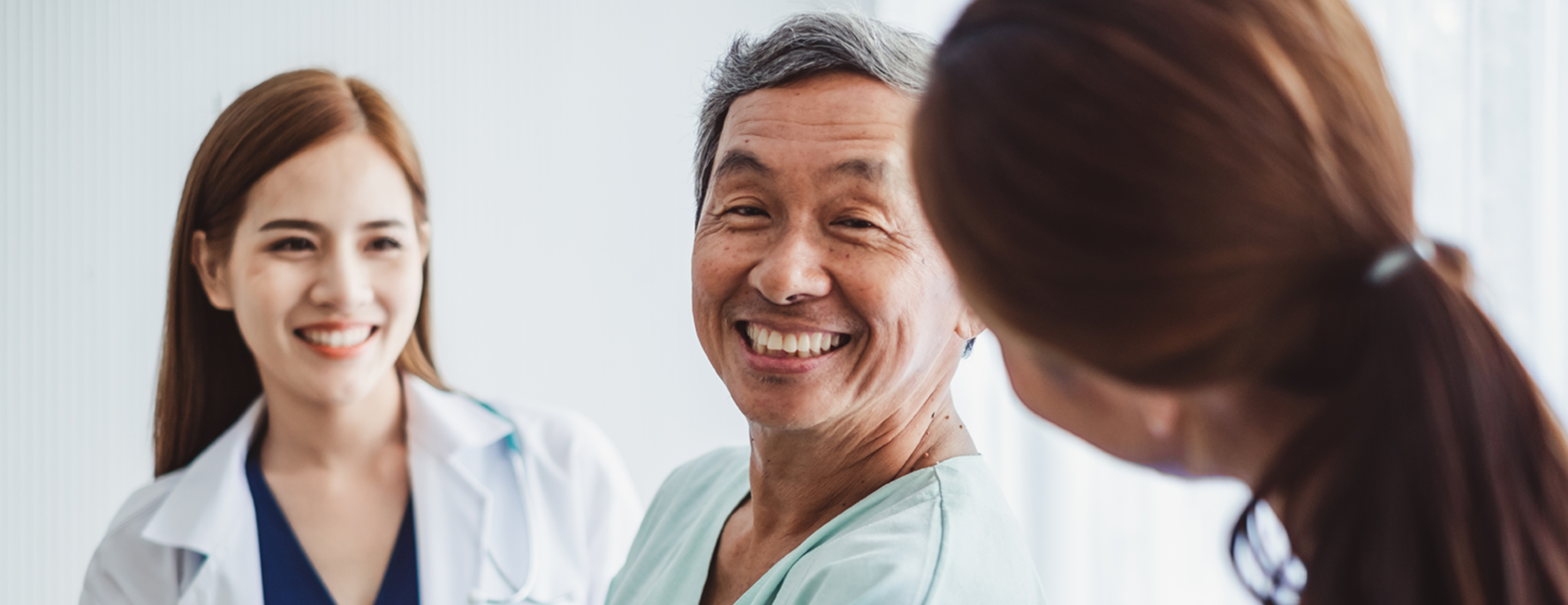
What to Expect from Your BMT Hospital Stay
Admission to the hospital
You will be admitted to the hospital on the day your chemotherapy begins. Your admission date may be changed based on your health status or bed availability. The length of your stay will be about four to six weeks. You may or may not be in a private room.
What to bring
You are encouraged to bring items from home that will help you feel more comfortable while you're in the hospital. Things you may bring include: clothing such as sleepwear, shorts and T-shirts; your own computer, tablet, phone, stereo, video games, crossword puzzles, books and other reading materials. (Clothing will be given to a family member to launder.) Bring eyeglasses if you wear them, but not contact lenses as you will not be allowed to wear them.
Please do not bring toiletry items; razors and nail clippers are not allowed. They will be provided to you. Each room is equipped with a small TV and refrigerator.
For health reasons, no fresh flowers or live plants are allowed.
If you have questions about what is appropriate to bring into the hospital, your transplant coordinator can discuss it with you.
The daily routine
A nurse will check your vital signs – temperature, pulse, respiration and blood pressure – at intervals around the clock. In the early morning, the nurse also will ask you to be weighed and your blood will be drawn through your catheter when appropriate.
Medications and transfusions are given throughout the day and night. Consultants' visits and tests may be done on an on-call basis. During the late afternoon or evening, you may want some quiet time for reading or meditation without interruption. Work with your nurse to choose a time that will not conflict with your treatment or tests.
Your doctors will visit you at least once a day. This would be a good time for your family to be present if they need to talk to the doctor. If you or your family has questions at other times during the day, your doctor may not be available, but your inpatient nurse, the nurse practitioner or other members of the team may be able to provide answers or take care of your problem quickly. Do not hesitate to talk with your inpatient nurse; she can contact your doctor or find the person who can answer your question.
Nutrition in the hospital
While you are receiving treatment, your resistance to infection is low and as a result, there are some foods you cannot eat. These include fresh fruits and vegetables, cottage cheese and buttermilk. Because these foods have a high bacteria count, they are not safe to eat while your blood counts are low. Other food restrictions will be explained to you by the dietitian, who will talk to you about food preferences and meals prepared in our kitchen.
Your family will not be able to bring you food from outside unless it is cleared by the doctor. We encourage patients to eat the food from our cafeteria. You can work with the dietitian if you have any special requests.
Staying active
You will need to get out of bed and move around as much as possible to keep your lungs and muscles in good shape. Using an incentive spirometer every two hours will keep your lungs exercised. Your nurse will show you how to use this.
In addition, walking around your room and the hall as well as sitting in a chair a few times each day can be helpful. However, when you walk around the floor, you must wear a mask and keep your hands clean. When your blood counts are low, you are not allowed to leave the BMT unit.
Visitors
Visiting hours are 8 a.m – 10 p.m. You can have a family member or caregiver stay overnight if you're in a private room, but not if you're in a shared room. All patients are in private rooms when their blood counts are low. But not everyone will be in a private room for their entire hospitalization.
Care must be taken to avoid transmitting infections from the visitors to the patient. Children less than 12 years of age and individuals with active symptoms of an infection are not allowed. Try not to have more than two visitors at a time. Visitors are required to wash their hands upon entering the room. It is your responsibility to "police" your visitors.
Preparing to leave the hospital
When your neutrophil count is over 1000, your team will start talking to you about discharge. You will need to be sure that arrangements have been made for someone to stay with you after you are discharged, to assist you with daily needs and to transport you for clinic visits. You or a family member will be taught how to care for your catheter.
To be discharged, you will need to be:
- Walking
- Eating at least 1000 calories daily
- Drinking at least one quart of fluid daily
- Free of active problems
- Without a fever
- Off intravenous medications and taking your pills without problems
- Show that you can care for your catheter
The case manager will assist with arrangements for home care. The nurse practitioner will go over your discharge and outpatient instructions and the pharmacist will review your medications with you.
UCSF Health medical specialists have reviewed this information. It is for educational purposes only and is not intended to replace the advice of your doctor or other health care provider. We encourage you to discuss any questions or concerns you may have with your provider.






